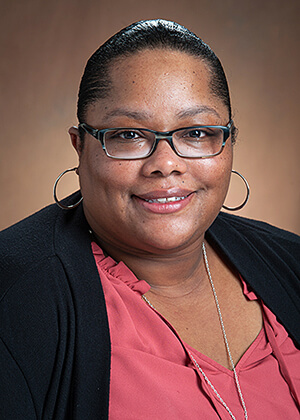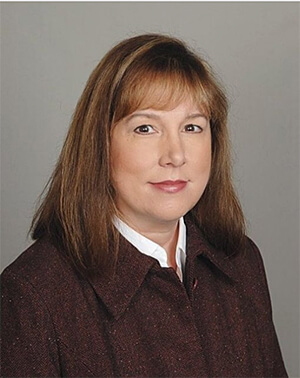July 29, 2020
Purdue University Global adds criminal justice, human services offerings; revises curriculum in Diversity and Inclusivity in Public Safety course
 Chloe Robinson
Download image
Chloe Robinson
Download image
INDIANAPOLIS — Purdue University Global announced Wednesday (July 29) the addition of four new micro-credentials in the areas of criminal justice and human services, which will be available for students beginning Aug. 26.
The four are Law Enforcement’s Role in Society and Social Change (criminal justice), Leading Law Enforcement Reform (criminal justice), Diversity (human services), and Social Problems, Prevention and Crisis Intervention (human services).
“I truly believe we can set a standard with these extraordinary offerings,” said Frank Dooley, Purdue University Global chancellor. “Being an educated person going forward means learning a lot of the things that will be taught here, learning how to carry on conversations with people who don’t look the same as you do, and to appreciate and value differences. This is exactly what we as an institution need to be doing. We are able to tell our students that we are paying attention to what is going on in the world.
“These offerings represent the beginning of our efforts, not the end. We will continue to track training and educational recommendations that arise, and then revisit our curriculum to ensure we're meeting community expectations.”
Here is a snapshot of the new micro-credential offerings:
Law Enforcement’s Role in Society and Social Change: Explore the basic framework of the criminal justice system, including law enforcement, courts and corrections; demonstrate a tangible understanding of criminal justice, including why crimes occur, the procedural process of courts and how police can effect positive change within society; and apply ethical reasoning to contemporary issues faced by criminal justice practitioners using the law enforcement code of ethics.
Leading Law Enforcement Reform: Explore the basic framework of administration of law enforcement among diverse populations, demonstrate a tangible understanding of socially responsible leadership and apply ethical reasoning to contemporary issues faced by criminal justice practitioners using the law enforcement code of ethics.
 Kristin Early
Download image
Kristin Early
Download image
Diversity: Analyze the impact of culture, race, gender and ethnicity in the workplace; identify the effects of social problems on individuals and society; examine how stereotypes, prejudice, racism and ethnocentrism can be obstacles to effective communication; create a plan to address communication challenges in a diverse society; and interpret the effects of 21st century challenges in policy and legislation on traditional views of gender roles.
Social Problems, Prevention and Crisis Intervention: Identify the effects of social problems on individuals and society; explore community resources to address social problems; describe multicultural practices necessary to work with diverse client populations; identify theoretical models that assist in the assessment, intervention, planning and treatment of people in crisis; apply ethical prevention and intervention strategies to crisis situations; and apply the appropriate skills to crisis situations.
In addition, a revised curriculum in the course Diversity and Inclusivity in Public Safety (CJ346) will be included in three of the micros, as well as Purdue Global’s Management and Supervision Certificate in criminal justice and Bachelor of Science degree in criminal justice. This revised offering was created by faculty members Chloe Robinson and Kristin Early in response to recent events in the United States and around the world.
“In light of what is going on, we thought it was important to create a class that combines diversity-related topics with police-accountability topics,” said Robinson, assistant department chair for undergraduate criminal justice programs. “It’s rare to see a class that revolves around either of these topics, yet alone one that combines both of them, so I am excited that we are able to address these societal issues.”
The remix incorporates Campaign Zero (the comprehensive platform of research-based policy solutions to end police brutality in America) and strategies from former U.S. President Barack Obama’s Task Force on 21st Century Policing, with an enhanced science-based approach and expanded to a broader spectrum of public safety.
“The opportunity to bridge the gap between what we have learned from research and scholarship and having data drive each of our units is exciting,” said Early, graduate professor of criminal justice. “In the end, our hope is that students will learn that diversity and inclusivity really can be integral parts to developing a system that instills trust and legitimacy in public safety.”
Frank Schmalleger, distinguished professor emeritus at the University of North Carolina and a Purdue Global public safety advisory board member, is impressed that Purdue Global faculty recognizes the importance of addressing today’s social justice issues in its criminal justice curriculum.
“The criminal justice program at Purdue Global has not only gotten ahead of the curve on important issues of social justice as they relate to the American justice system and its procedures, but has developed new courses that are both informative and eye-opening,” Schmalleger said.
About Purdue University Global
Purdue University Global is the extreme personalization online university, providing students the competitive edge to advance in their chosen careers. It offers a hyper-tailored path for students to earn an associate, bachelor’s, master’s or doctoral degree, based on their work experience, desired pace, military service, previous college credits and other considerations – no matter where they are in their life journey. Purdue Global serves more than 31,000 students (as of June 2020), most of whom earn their degree online. It also operates several regional locations nationwide. Purdue Global is a nonprofit, public university accredited by The Higher Learning Commission. It is affiliated with Purdue University’s flagship institution, a highly ranked public research university located in West Lafayette, Indiana. Purdue University also operates two regional campuses in Fort Wayne and Northwest, Indiana, as well as serving close to 6,000 science, engineering and technology students at the Indiana University-Purdue University Indianapolis (IUPUI) campus. For more information, please visit purdueglobal.edu.
Writer, Media contact: Tom Schott, 765-427-1721, tschott@purdue.edu
Sources: Frank Dooley, frank.dooley@purdueglobal.edu
Sara Sander, ssander@purdueglobal.edu
Chloe Robinson, crobinson@purdueglobal.edu
Kristin Early, kearly@purdueglobal.edu
Note to Journalists: Photos of Chloe Robinson and Kristin Early are available on Google Drive.

